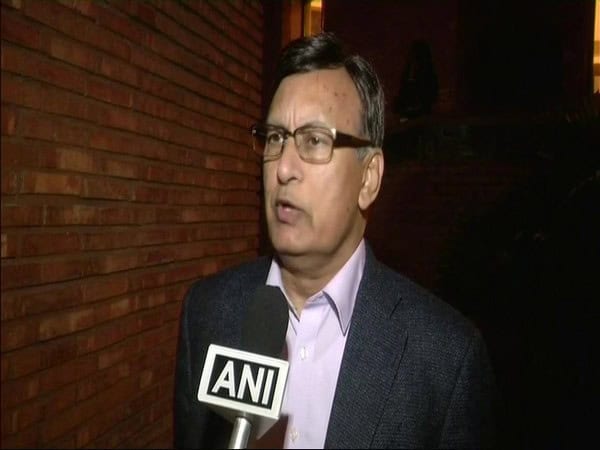Washington: American civil and military leaders should withhold praise for “positive” developments in Pakistan’s policies on fighting terrorism until some actual change is visible, said former Pakistan envoy to United States Hussain Haqqani.
Haqqani, in an article titled, “Here We Go Again”, published in The American Interest, has opined that the praise only postpones Pakistanis’ much-needed reflection over the faulty worldview that has shaped Islamabad’s flawed policies.
Referring to United States President Donald Trump’s scathing remark on New Year’s day against Pakistan, in which Trump accused it of lying and deceiving while receiving billions in aid, Haqqani said less than three months after Trump’s critical remarks some U.S. military leaders are ready to praise the half-hearted steps Pakistan has taken against terrorist safe havens.
“If past experience is any guide, the use of softer language by American generals in the hope of strengthening military-to-military ties will only encourage Pakistani generals to assume that their two-track policy of reassuring Americans of cooperation while maintaining support for jihadi terrorists is working,” he stated.
The former Pakistan envoy mentioned that last month, the praise by the United States Central Command (CENTCOM) Commander General Joseph Votel is enough to reassure Pakistan’s military leaders, who claim that, after several false starts, this time they really are on the verge of a policy transformation. However, few days after General Votel’s nod to the Pakistani military, a senior U.S. official had to clarify that the “United States has not yet seen Pakistan take significant steps to clamp down on the Afghan Taliban and the Haqqani network militant groups.”
“According to this official, Islamabad had failed to take ‘the kind of decisive and irreversible action’ Washington had asked for to help with the war in Afghanistan. As for the ‘positive indicators’ mentioned by General Votel, and later by Defense Secretary James Mattis, the official saw these as attempts by Pakistan ‘to appear responsive’ to American requests. The Pakistanis “have done the bare minimum to appear responsive” to U.S. government requests-the sort of tactical cooperation that has misled Americans into trusting Pakistan in the past, and that has been a key factor in prolonging the war in Afghanistan,” he stated.
Haqqani further mentioned the media reports that highlight Pakistan Amry Chief General Qamar Bajwa wants “Pakistan to continue along the path of democracy, end all support and tolerance for jihadi militancy and terrorism, and develop better relations with Afghanistan and India.”
However, evidence on the ground suggests that he is fundamentally no different than others, Haqqani noted.
“The “Bajwa Doctrine” is not fundamentally different from the “Kayani Doctrine,” named after General Ashfaq Kayani who served as Pakistan’s army chief from 2007 to 2013. And the “Kayani Doctrine” did not differ in substance from the policies and premises espoused by military commanders before Kayani, notably General Pervez Musharraf, who seized power in a military coup in 1999 and ruled Pakistan for nine years,” he stated.
Haqqani noted that Pakistan is only bothered about the terrorists who attack inside Pakistan and turns a blind eye towards those that menace the Americans in Afghanistan or Indians in Jammu and Kashmir.
“In that worldview, jihadi terrorists serve as a force multiplier for Pakistan against a permanently hostile India and an Afghanistan whose sense of history prevents it from becoming subservient to 70-year old Pakistan, despite the latter’s much larger population and economy,” he said.
“The only terrorists Pakistan needs to oppose, according to this template, are the ones who attack inside Pakistan; those that menace the Americans in Afghanistan or Indians in Jammu and Kashmir are more than tolerable,” he added.
Haqqani concluded by saying that for a significant change Pakistani needs to discuss alternative futures for their country, including views on Afghanistan and India that do not paint them as permanent threats. (ANI)

